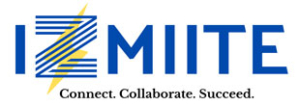With the Salesforce ecosystem expanding at such a rapid rate, IDC predicts that by 2024, 4.2 Million new jobs will have been created. As Salesforce also expands its product suite through innovation and acquisition, the landscape of Salesforce roles and responsibilities is constantly changing.
There has never been a better time to get into Salesforce. Not only because of the huge growth but also because of the amount of Salesforce roles in the ecosystem. Depending on your skill set and personality, the perfect job is waiting for you.
Salesforce Admin
Salesforce Admins carry out a core function of any Salesforce implementation. They are the backbone that keeps everything ticking along, deal with any bugs, and ensure that a companies investment into Salesforce is being maximised.
Smaller end-users might employ a solo Admin, whilst larger companies with 100 or 1000’s of Salesforce licenses might employ multiple Admins as part of a larger team, including Developers, Business Analysts, and multiple other roles.
Salesforce Admin Roles & Responsibilities
- Work with stakeholders to understand business requirements, pain points, and goals
- Gather requirements from different stakeholders and teams within the business.
- Use declarative functionality (Clicks, not code) to build solutions using the Salesforce platform
- Ensure all users have the correct access to Salesforce, and can perform their day to day tasks with minimal friction
- Maintaining the platform, including staying up to date on new features and releases, as well as fixing any bugs.
- Training users on new functionality or features.
Salesforce Developer
Salesforce Developers support Admins and other roles, by extending the platform using code. Whilst Salesforce declarative functionality can cover most requirements, there may come a time where you need custom integration, complex Apex code, or Lightning development.
Salesforce Developers often work for end-users as an individual or part of a larger team. You can also commonly find them working for Salesforce consultancies.
Salesforce Developer Roles & Responsibilities
- Collaborating with the Salesforce Administrator to validate business requirements and any considerations (security, scalability, limits)
- Developing Apex Classes and Triggers, as well as test classes for all custom development
- Custom user interface development, including Visualforce pages/Lightning pages, Aura Components and Lightning Web Components
- Use Salesforce APIs to integrate with other systems used in the organization
- Adhere to Salesforce best practices, maintain code documentation, and write / maintain test classes for all custom development
Salesforce Consultant
Salesforce Consultant Roles & Responsibilities
- Scoping out projects by gathering requirements from client stakeholders
- Creating Salesforce solutions off the back of user stories
- Utilising Salesforce declarative functionality to build solutions, and working with Developers when requirements go beyond point-and-click functionality
- Performing demo’s of the Salesforce build to gather feedback
- Overseeing UAT (User Acceptance Testing)
- Documenting the Salesforce build
- Training users & super users
Salesforce Business Analyst
Business Analysts are the people in your organization who are asking ‘why’ – why a process happens the way it does – to understand what the business needs from its technology.
They act as a translator. Your business wants to accomplish something, and we know it is going to be accomplished using Salesforce; the BA’s job is to translate what the business wants to do, into how it actually gets done.
One size doesn’t fit all when it comes to the job title “Salesforce Business Analyst”. Toni V Martin, thought leader and Salesforce MVP, clearly set out the different types of BAs you may come across in the Salesforce ecosystem. She advocates that it makes a difference to how you navigate starting as a BA, or moving into your next BA role. With this in mind, take the list of responsibilities that follows with a pinch of salt!
Salesforce Business Analyst Roles & Responsibilities
- Gather requirements (aka. requirements elicitation) to understand what people need from the tools and technology they use.
- Write user stories: essentially a task, a piece of work you need to complete to help meet the overall business requirement, that follow the structure “as a [role], I want to [action], so that I can [outcome]”.
- Requirements acceptance: facilitate business users (who you are delivering solutions for) to review the requirements/user stories that have been drawn up.
- Business process mapping: “creates visual representations of business processes. A business process map includes the steps in the process, who does what, additional context, and how success is measured” (source)
- Keep user documentation up to date once release cycles have been completed.
- Present outcomes to executive teams upon project completion.
Salesforce Project Manager
Salesforce Project managers are mostly found at Salesforce Consultancies, but could also be employed by very large end-users. They are tasked with overseeing the delivery of a project, ensuring that it is delivered on time, within scope, and within the budget.
Good Salesforce project managers will have a broad range of skills. Communication, planning, and having deep knowledge about the Salesforce platform is a recipe for success.
Salesforce Project Manager Roles & Responsibilities
- Overseeing the end-to-end delivery of a Salesforce project
- Taking responsibilities for delivering the project within scope and hitting milestones
- Ensure effective planning of project timeline, including sprint planning and organising any phases
- Holding team members accountable for delivering their work on time
- Ensuring proper use of project management tools across the team
Salesforce Solution Architect
The Salesforce solution architect role has been trending for a while now. As Salesforce implementations get larger and more complex, the Salesforce solution architect oversees the implementation to ensure the correct solution is being implemented for the documented requirements.
Solution architects must have an expert level of knowledge about the Salesforce platform, focussing especially on best practices, limitations and performance of the platform.
Solution architects are commonly found at Salesforce consultancies, but could also be employed by large end-users of Salesforce.
Salesforce Solution Architect Roles & Responsibilities
- Oversee and take responsibility for the overall Salesforce solution
- Has a deep understanding of Salesforce products, as well as the customisation and development possibilities
- Is able to architect solutions on Salesforce that are secure, scalable, and meet the business requirements
- Ensuring that the solution, and all customisations to the platform meet best practices
- Overseeing the delivery of the architect solution
Salesforce Technical Architect
A Salesforce Technical Architect is usually the most technical role on the project. They must not just hold expert knowledge on the Salesforce platform, but also surrounding technologies that may be integrated into Salesforce. They will ultimately help make the decisions that guide the entire technical direction of the project.
Salesforce Technical Architects will usually work for Salesforce consultancies where they will be supporting on the most complex implementations that span multiple Salesforce clouds, and integrate into other systems.
Salesforce Technical Architect Roles & Responsibilities
- Holds the responsibility for the technical direction, and implementation of the project.
- Has a deep understanding of Salesforce products, customisation, development, and integration into other systems.
- Has experience leading a development team, ensuring best practices in development and integration are adhered to.
- Can identify risks associated with development, included scalability, performance, or security issues.
- Understand limitations of the Salesforce platform, especially where large data volumes are concerned.
Salesforce Marketers
Marketing professionals in the Salesforce ecosystem can be tricky to describe in a succinct way, with variations in job titles, product expertise, and technical flair. Salesforce marketers generally fall into these categories:
- Marketers who use Pardot
- Marketers who use Salesforce Marketing Cloud (SFMC)
- Marketers with Salesforce knowledge (who use another marketing automation platform, eg. Marketo)
- Pardot/Marketing Cloud Consultants who are well-versed on implementation, having seen multiple instances (as opposed to only working with one account)
Salesforce Marketers Roles & Responsibilities
With that in mind, here are some things Salesforce marketers do (note: no professional will do all):
- Set up Salesforce Campaigns, ensure that the marketing automation platform is syncing the appropriate prospect/subscriber data to Campaign Members(eg. email engagement, ebook downloads)
- Report on Campaign Influence
- Build out email campaigns (eg. in Pardot’s Engagement Studio, or SFMC’s Journey Builder), report on their success, and make changes to optimize their impact.
- Build other marketing assets for use in campaigns, such as landing pages, forms, and trackable links.
- Build out automation to transform (eg. Pardot automation rules/completion actions, or SFMC’s Automation Studio)
- Maintain incoming data quality from forms.
- Be responsible for qualifying/disqualifying inbound leads, at scale (eg. Pardot scoring & grading)
- (and furthermore) deliver the business a target number of ‘marketing qualified leads’ (MQLs)every month/quarter.
- Launch advertising campaigns (eg. social media, digital advertising via Google Ads) that will attract new visitors to your website/landing pages in the hope they will ‘convert’ by submitting their contact information.
- Monitor website behavior (eg. using Google Analytics) to identify where and why visitors leave the website without converting.
- (and on the technical side) writing queries (eg. SQL), data import, data transformation, troubleshooting sync behavior between platforms, building integrations, HTML/CSS coding.




Leave a Reply
Want to join the discussion?Feel free to contribute!